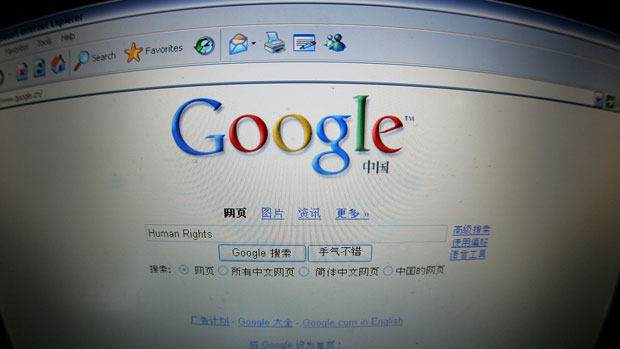China purges web porn - but is it an attack on free speech?
Western observers say crackdown on obscene material masks broader online repression

A free daily email with the biggest news stories of the day – and the best features from TheWeek.com
You are now subscribed
Your newsletter sign-up was successful
CHINA has announced a crackdown on internet pornography, titled 'Cleaning the Web 2014', shutting down thousands of websites, including social media sites, in the process.
The campaign has seen the closure of more than 110 websites and 3,300 user accounts allegedly containing obscene material since January, reports The Independent. Online pornography is illegal in China and this is just the latest in a long line of purges.
A spokesperson told the state Xinhua news agency: "Disseminating pornographic information online severely harms the physical and mental health of minors, and seriously corrupts social ethos."
The Week
Escape your echo chamber. Get the facts behind the news, plus analysis from multiple perspectives.

Sign up for The Week's Free Newsletters
From our morning news briefing to a weekly Good News Newsletter, get the best of The Week delivered directly to your inbox.
From our morning news briefing to a weekly Good News Newsletter, get the best of The Week delivered directly to your inbox.
However, critics in the West say the repressive state's apparent concern for citizens' moral fibre may be an excuse to suppress freedom of speech and dissent. Writing for US publication Foreign Policy, Zhang Jialong says the crackdown is "not about porn" but instead is "going after rumours".
By shutting down sites which allow users to post whatever content they like - which could in theory be pornographic but in practice might be political - the Party can suppress dissent, he suggests.
Another commentator, Tyler Roney of US-slanted site The Diplomat, points out that, given previous internet campaigns, "it's hard to understand how some of the largest porn sites... slipped through the cracks".
He adds: "If you want to read reports from Amnesty International or the New York Times in China, you are bang out of luck ... Still, the glorious proletariat can look at Porn.com until they're blue in the face."
A free daily email with the biggest news stories of the day – and the best features from TheWeek.com
-
 Political cartoons for February 15
Political cartoons for February 15Cartoons Sunday's political cartoons include political ventriloquism, Europe in the middle, and more
-
 The broken water companies failing England and Wales
The broken water companies failing England and WalesExplainer With rising bills, deteriorating river health and a lack of investment, regulators face an uphill battle to stabilise the industry
-
 A thrilling foodie city in northern Japan
A thrilling foodie city in northern JapanThe Week Recommends The food scene here is ‘unspoilt’ and ‘fun’
-
 Epstein files topple law CEO, roil UK government
Epstein files topple law CEO, roil UK governmentSpeed Read Peter Mandelson, Britain’s former ambassador to the US, is caught up in the scandal
-
 Iran and US prepare to meet after skirmishes
Iran and US prepare to meet after skirmishesSpeed Read The incident comes amid heightened tensions in the Middle East
-
 Israel retrieves final hostage’s body from Gaza
Israel retrieves final hostage’s body from GazaSpeed Read The 24-year-old police officer was killed during the initial Hamas attack
-
 China’s Xi targets top general in growing purge
China’s Xi targets top general in growing purgeSpeed Read Zhang Youxia is being investigated over ‘grave violations’ of the law
-
 Panama and Canada are negotiating over a crucial copper mine
Panama and Canada are negotiating over a crucial copper mineIn the Spotlight Panama is set to make a final decision on the mine this summer
-
 Why Greenland’s natural resources are nearly impossible to mine
Why Greenland’s natural resources are nearly impossible to mineThe Explainer The country’s natural landscape makes the task extremely difficult
-
 Iran cuts internet as protests escalate
Iran cuts internet as protests escalateSpeed Reada Government buildings across the country have been set on fire
-
 US nabs ‘shadow’ tanker claimed by Russia
US nabs ‘shadow’ tanker claimed by RussiaSpeed Read The ship was one of two vessels seized by the US military